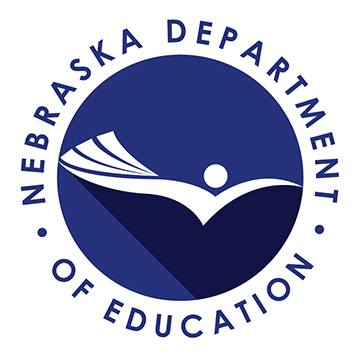One day she was building the world’s largest wooden-block skyscraper that she would take all the way to the moon. The next, she was nervous about crossing the street on our venture to the library, even though we were holding hands.
The uniqueness of kindergarteners is that they can think somewhat abstractly but still need concrete experiences; they can follow directions but they also need to explore their own ideas; and they can think complexly about some concepts but still think simplistically about others (Kostelnik, Soderman and Whiren, 2011).
Looking back, it’s easy to see that my then 5-year-old was showing glimpses of the beautiful young lady she would become. That journey began well before she went to school, although I remember her first day of kindergarten like it was yesterday.
Kindergarten is a very important year in the lives of Nebraska's students and their families.
The developmental level of kindergarten children requires a unique approach to teaching and learning that merges the teaching styles of preschool and the primary grades, and includes both highly structured and less structured instructional opportunities, teacher- and child-led experiences and time for purposeful, rich play and physical movement each day. Due to the unique development of kindergarten-age children, the role of the kindergarten teacher is quite complex. Kindergarten teachers are an intricate fusion of parents, nurses, conflict managers, instructors, supporters and friends. The kindergarten teacher is the provider of rich academic opportunities and experiences and an emotional and intellectual supporter. The teacher fosters the development of language and literacy skills using multiple strategies and also focuses on developing the whole child. The teacher infuses academic concepts and skills into children’s play, encouraging higher-order thinking and language skills through these purposeful, child-initiated experiences.
the primary grades, and includes both highly structured and less structured instructional opportunities, teacher- and child-led experiences and time for purposeful, rich play and physical movement each day. Due to the unique development of kindergarten-age children, the role of the kindergarten teacher is quite complex. Kindergarten teachers are an intricate fusion of parents, nurses, conflict managers, instructors, supporters and friends. The kindergarten teacher is the provider of rich academic opportunities and experiences and an emotional and intellectual supporter. The teacher fosters the development of language and literacy skills using multiple strategies and also focuses on developing the whole child. The teacher infuses academic concepts and skills into children’s play, encouraging higher-order thinking and language skills through these purposeful, child-initiated experiences.
No matter the experiences your kindergartener will bring to their classroom, the Nebraska Department of Education is here to support you and your child’s school. We look forward to a successful year for the future Class of 2028!
For more information about kindergarten in Nebraska, see “Ready for Success: What Families Want to Know about Starting School in Nebraska.”
Questions about kindergarten and primary grades in Nebraska? Please contact me at (402) 471-0263. For additional information about professional development related to kindergarten in Nebraska, please contact Kristine Luebbe at (402) 471-1860. To borrow media materials on this topic, contact the media center at (402) 557-6885 or visit the media center's online catalog.
Melody Hobson
Administrator, Office of Early Childhood
Nebraska Department of Education


